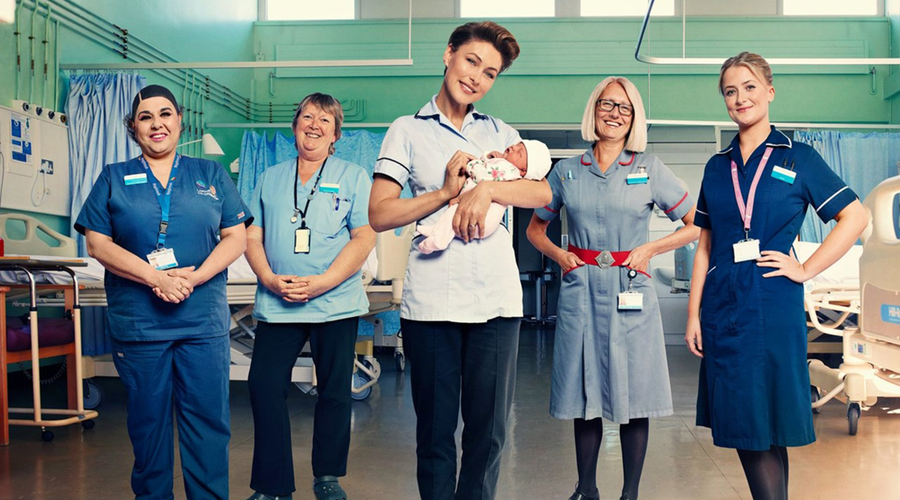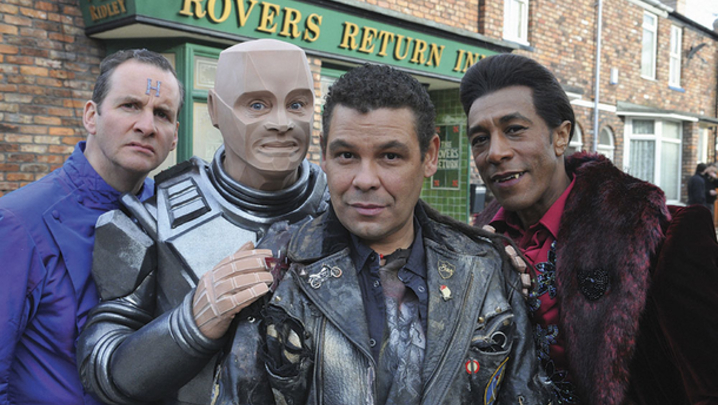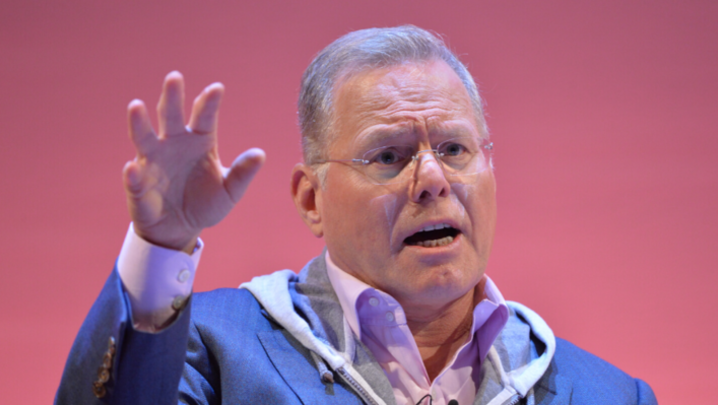Tara Conlan asks who is likely to gain most from the BBC’s record-breaking purchase of Discovery’s stake in UKTV
Contestants on UKTV channel Dave’s hit show Taskmaster have to think laterally and creatively as a series of challenges are thrown at them. Much like the BBC had to in 2017 when Discovery’s acquisition of UKTV’s co-owner Scripps triggered a clause that gave BBC Studios the option to buy out Discovery. The problem was that it lacked the cash to do so.
To add to the BBC’s dilemma, the clause also gave Discovery the chance to buy the corporation out of UKTV. Potentially, this would have affected the British media ecology – and the programme licence agreement BBC Studios (BBCS) has with UKTV.
The agreement that commits the multichannel broadcaster to take a certain number of BBC shows is negotiated every couple of years and is worth around £50m. A Discovery-owned UKTV would probably have driven a harder bargain.
With all that to overcome, negotiations between the BBC and Discovery were lengthy. They included failed attempts to stage a buyout with ITV or Channel 4.

A deal was finally announced in March – the biggest commercial acquisition in the BBC’s history – which gives BBCS full control of UKTV, although three of UKTV’s 10 free-to-air and pay channels go to Discovery: Good Food, Home and Really. Discovery also gets payments totalling £173m and content partnerships.
These include an exclusive, 10-year deal for natural history rights to content such as Blue Planet outside of the UK, Ireland and China for Discovery’s new streaming service.
So what does this mean for the future of UKTV? Will it become for the BBC, as one analyst warned, “another Lonely Planet”, or will it help the BBC win the game of rights it is playing against Netflix and Amazon and the independent production community?
And what effect will the deal have on BritBox, the BBC’s “best of British content” streaming joint venture with ITV?
After humble beginnings as a Gold service based on BBC and ITV hits, UKTV has come a long way. Under its last CEO, Darren Childs, the company moved successfully into adventurous, original commissions. Among the most notable are Taskmaster, PR drama Flack and the forthcoming Martin Compston drama Traces, which will air on Alibi.
BBCS should take full control of UKTV by the beginning of June. The company’s 270 or so staff, based in West London and a small outpost in Leeds, are wondering what the effects will be. The transaction includes the high-tech HQ in Hammersmith. Will they will be moving into BBC Studios’ home and are job cuts inevitable?
Some insiders say that, in time, some back-office jobs will go. As one source with knowledge of the deal puts it: “There will probably be a reorganisation after TUPE [Transfer of Undertakings rules that protect employees] and things like that have happened.”
With the loss of the Good Food, Home and Really channels to Discovery, analysis by Enders predicts that “UKTV’s portfolio will drop from 9.5% of total UK adult commercial impacts to 7.5% (based on 2018 data) if all else remains equal, thereby shrinking in size by 21%. There will be few, if any, repercussions in the TV advertising market.”
Enders senior TV research analyst Tom Harrington says the “channels split makes sense. The bigger question is how it works for the BBC in terms of content flow. UKTV likes to make a big point about the success of its original shows. It’s true they have been successful, but the backbone is still the archival content. How much of the stuff will be going on BritBox?
"When the budgets for public service broadcasting are being squeezed [so]… why is money being channelled into buying out Discovery?”
“UKTV currently has a content agreement where the BBC can withhold certain things, such as Doctor Who, and can sell them to other parties. UKTV can’t select that. [If] it adds more to what UKTV can’t select, that could weaken the channels. BBC Studios also has a new box-set deal with Sky.
“It’s confusing. There are different factions [within the BBC group] who have competing interests. You have iPlayer, too, [which is] trying to put on more box sets and make them available for longer.
“How does that work with BritBox? It all plays into what the future of UKTV is going to look like.”
He adds: “Legacy media businesses have to straddle digital and terrestrial at the same time. That’s difficult. Then, you have pay-TV and free. It’s not a criticism: they have to work in different areas and you get these… twisted knots of strategies that don’t work together.”
UKTV spends £150m a year on content. The budget is fluid between commissions and acquisitions. Concerns were raised by independent producers, including Avalon and Hat Trick (makers of Taskmaster and the new Dave hit Hypothetical, respectively), that commissions from independents in which BBCS has a stake might be prioritised.
A significant proportion of the £250m or so that BBCS returns to the public service wing of the corporation comes from UKTV dividends. Insiders say that it is keen to continue this by commissioning from across the independent sector and not only from those companies it part owns.
But the takeover comes amid a tussle between independent producers and the BBC over the secondary rights market. This was prompted by the BBC asking Ofcom to allow iPlayer to keep shows for up to 12 months so that it can compete effectively with Netflix and Amazon.
At the time, the BBC argued that UKTV Play was an iPlayer rival. How those services will work together under the new regime is anybody’s guess.
There are other worries from the content sector. One producer says: “Our big concern is that we’re seeing a lot of activity around the commercial side of the BBC at a time when the budgets for public service broadcasting are being squeezed [so]… why is money being channelled into buying out Discovery?”
The BBC argues that it needs more control over rights – which is boosted by owning UKTV – to assist in its fight against the streamers. But one programme-maker retorts that this risks a “fire sale overnight” if “producers can’t utilise the secondary rights window”.

BBC sources suggest that UKTV’s commissioning budgets will rise. They point out that BBCS has not used licence-fee funds but instead deployed its existing borrowing facility to fund the acquisition.
They insist that the requirement to fund free licences for the over-75s and implement cuts worth £800m at the same time as the global tech giants are pushing up programme-making costs means the corporation has to do something to secure its future.
However, some observers question why the BBC is buying a bigger stake in the linear-TV market at a time when streaming is eating away at it.
They argue that Discovery has come out best from the deal, with a 10-year SVoD arrangement and a programming supply agreement thought to be worth around £300m over that period. The US company also gets hundreds of hours of BBC factual archive content.
For the corporation, there is a co-funding development team at BBCS to make factual content for Discovery. This may make up some of the shortfall as Amazon and Netflix have become more selective about co-productions.
Having been co-owned by a US company and BBCS has not been without some bumps along the way for UKTV. So it is possible that the takeover may bring UKTV some strategic stability. During 2016, five directors of the parent company, UKTV Media Holdings, resigned. One of those was Marcus Arthur, BBCS President of UK, Ireland, Australia and New Zealand – who is the new CEO of UKTV and also sits on the board of BBCS.
That has raised eyebrows about a potential conflict of interest.
Arthur is not yet in post but tells Television: “I’m really excited about BBC Studios’ future with UKTV. Its success has been built on innovative original commissioning and brilliant BBC shows. It’s jam-packed with talent and bright ideas. The fact that we are securing its future is great news for audiences and programme-makers alike.”
Let’s hope that this optimism turns out to be well founded.





